
漢德百科全書 | 汉德百科全书
 Narendra Modi
Narendra Modi

 Alberto Ángel Fernández
Alberto Ángel Fernández
 Andrés Manuel López Obrador
Andrés Manuel López Obrador
 Angela Merkel
Angela Merkel
 Boris Johnson
Boris Johnson
 Charles Michel
Charles Michel
 Cyril Ramaphosa
Cyril Ramaphosa
 Emmanuel Macron
Emmanuel Macron

 Fumio Kishida
Fumio Kishida


 Hand in Hand
Hand in Hand
 Hassanal Bolkiah
Hassanal Bolkiah
 Italy
Italy
 Jacinda Ardern
Jacinda Ardern
 Jair Bolsonaro
Jair Bolsonaro
 Joe Biden
Joe Biden
 Joko Widodo
Joko Widodo
 Justin Trudeau
Justin Trudeau

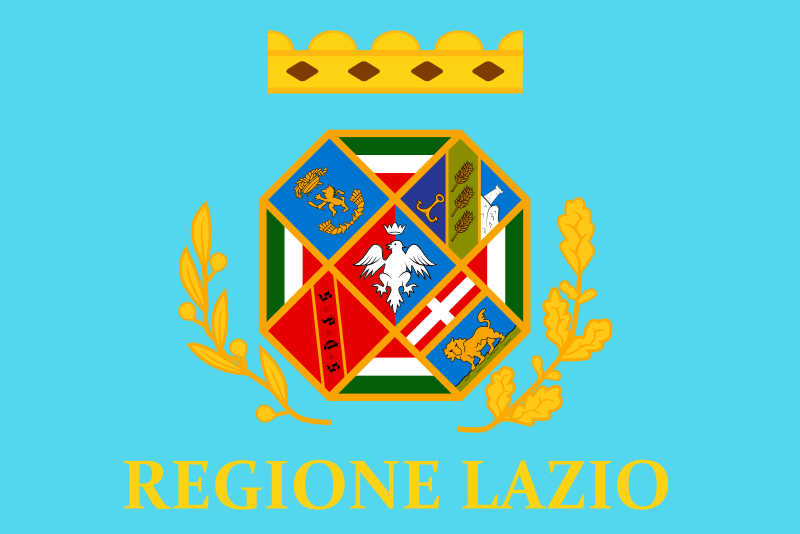 Lazio
Lazio
 Lee Hsien Loong
Lee Hsien Loong
 Mario Draghi
Mario Draghi
 Mark Rutte
Mark Rutte
 Moon Jae-in
Moon Jae-in
 Narendra Modi
Narendra Modi
 Paul Kagame
Paul Kagame
 Pedro Sánchez
Pedro Sánchez
 Recep Tayyip Erdoğan
Recep Tayyip Erdoğan
 Rodrigo Duterte
Rodrigo Duterte
 Salman ibn Abd al-Aziz
Salman ibn Abd al-Aziz
 Scott Morrison
Scott Morrison
 Ursula von der Leyen
Ursula von der Leyen
 Wladimir Wladimirowitsch Putin
Wladimir Wladimirowitsch Putin
 Xi Jingping
Xi Jingping

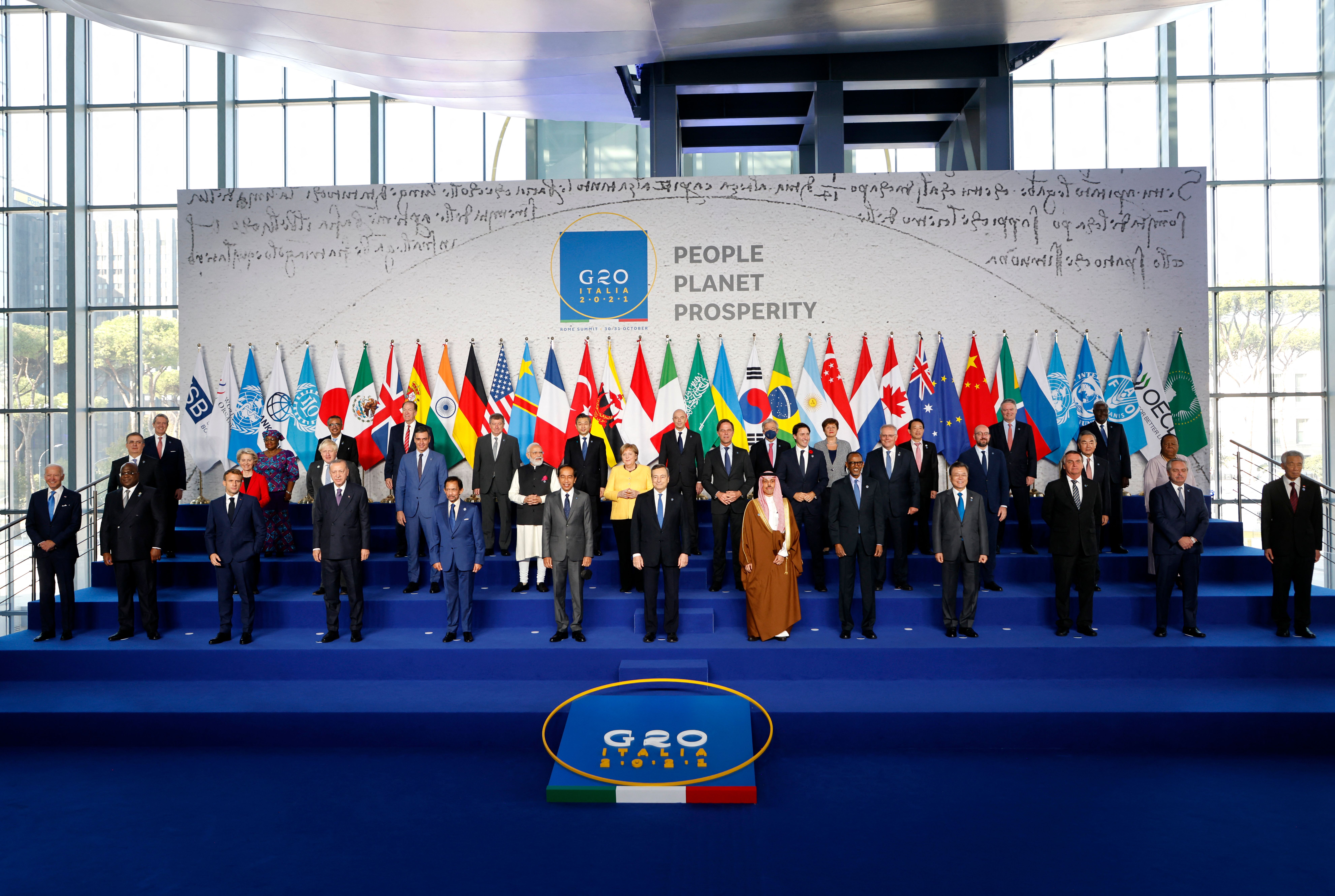
 Alberto Ángel Fernández
Alberto Ángel Fernández
 Anthony Albanese
Anthony Albanese
 António Guterres
António Guterres
 Charles Michel
Charles Michel
 Cyril Ramaphosa
Cyril Ramaphosa
 Emmanuel Macron
Emmanuel Macron
 Fumio Kishida
Fumio Kishida
 Giorgia Meloni
Giorgia Meloni

 Hand in Hand
Hand in Hand
 Indonesia
Indonesia
 Joe Biden
Joe Biden
 Joko Widodo
Joko Widodo
 Justin Trudeau
Justin Trudeau
 Lee Hsien Loong
Lee Hsien Loong
 Macky Sall
Macky Sall
 Mark Rutte
Mark Rutte
 Mohammad bin Salman bin Abdulaziz Al Saud
Mohammad bin Salman bin Abdulaziz Al Saud
 Mohamed bin Zayed Al Nahyan
Mohamed bin Zayed Al Nahyan
 Narendra Modi
Narendra Modi
 Olaf Scholz
Olaf Scholz
 Paul Kagame
Paul Kagame
 Pedro Sánchez
Pedro Sánchez
 Recep Tayyip Erdoğan
Recep Tayyip Erdoğan
 Rishi Sunak
Rishi Sunak
 Tedros Adhanom
Tedros Adhanom
 Ursula von der Leyen
Ursula von der Leyen
 Wolodymyr Selenskyj
Wolodymyr Selenskyj
 Xi Jingping
Xi Jingping
 Yoon Suk-yeol
Yoon Suk-yeol

 Alberto Ángel Fernández
Alberto Ángel Fernández
 Boris Johnson
Boris Johnson
 Charles Michel
Charles Michel
 Cyril Ramaphosa
Cyril Ramaphosa
 Germany
Germany
 Emmanuel Macron
Emmanuel Macron

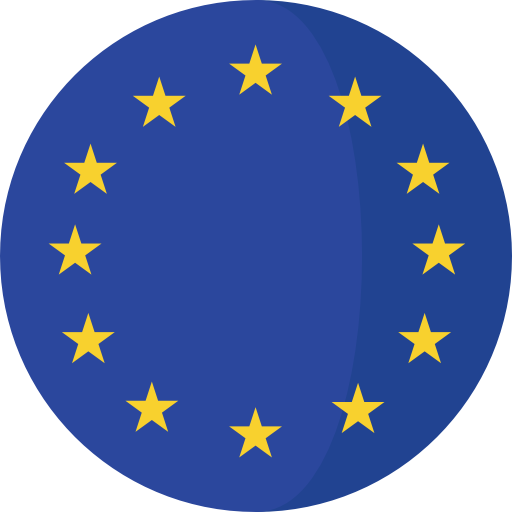 European Union
European Union
 France
France
 Fumio Kishida
Fumio Kishida

 Hand in Hand
Hand in Hand
 Italy
Italy
 Japan
Japan
 Joe Biden
Joe Biden
 Joko Widodo
Joko Widodo
 Justin Trudeau
Justin Trudeau
 Canada
Canada
 Macky Sall
Macky Sall
 Mario Draghi
Mario Draghi
 Narendra Modi
Narendra Modi
 Olaf Scholz
Olaf Scholz
 Ursula von der Leyen
Ursula von der Leyen
 United States
United States
 United Kingdom
United Kingdom
 Wolodymyr Selenskyj
Wolodymyr Selenskyj


 Abd al-Fattah as-Sisi
Abd al-Fattah as-Sisi
 Alberto Ángel Fernández
Alberto Ángel Fernández
 Andrés Manuel López Obrador
Andrés Manuel López Obrador
 Anthony Albanese
Anthony Albanese
 António Guterres
António Guterres
 Asian Development Bank,ADB
Asian Development Bank,ADB
 Asian Development Bank,ADB
Asian Development Bank,ADB
 Masatsugu Asakawa
Masatsugu Asakawa
 Azali Assoumani
Azali Assoumani
 Charles Michel
Charles Michel
 Cyril Ramaphosa
Cyril Ramaphosa
 Emmanuel Macron
Emmanuel Macron
 Fumio Kishida
Fumio Kishida
 Giorgia Meloni
Giorgia Meloni

 Hand in Hand
Hand in Hand
 Hasina Wajed
Hasina Wajed
 India
India
 Internationaler Währungsfonds
Internationaler Währungsfonds
 Internationaler Währungsfonds
Internationaler Währungsfonds
 Kristalina Georgiewa
Kristalina Georgiewa
 Joe Biden
Joe Biden
 Joko Widodo
Joko Widodo
 Justin Trudeau
Justin Trudeau
 Kristalina Georgiewa
Kristalina Georgiewa
 Lee Hsien Loong
Lee Hsien Loong
 Li Qiang
Li Qiang
 Luiz Inácio Lula da Silva
Luiz Inácio Lula da Silva
 Mark Rutte
Mark Rutte
 Mohammad bin Salman bin Abdulaziz Al Saud
Mohammad bin Salman bin Abdulaziz Al Saud
 Mohamed bin Zayed Al Nahyan
Mohamed bin Zayed Al Nahyan
 Narendra Modi
Narendra Modi
 National Capital Territory
National Capital Territory
 Olaf Scholz
Olaf Scholz
 Pedro Sánchez
Pedro Sánchez
 Recep Tayyip Erdoğan
Recep Tayyip Erdoğan
 Rishi Sunak
Rishi Sunak
 Tedros Adhanom
Tedros Adhanom
 Ursula von der Leyen
Ursula von der Leyen
 World Bank
World Bank
 World Bank
World Bank
 Ajay Banga
Ajay Banga
 World Trade Organization
World Trade Organization
 World Trade Organization
World Trade Organization
 Ngozi Okonjo-Iweala
Ngozi Okonjo-Iweala
 Yoon Suk-yeol
Yoon Suk-yeol

 Cyril Ramaphosa
Cyril Ramaphosa

 Hand in Hand
Hand in Hand
 Luiz Inácio Lula da Silva
Luiz Inácio Lula da Silva
 Narendra Modi
Narendra Modi
 South Africa
South Africa
 Wladimir Wladimirowitsch Putin
Wladimir Wladimirowitsch Putin
 Xi Jingping
Xi Jingping
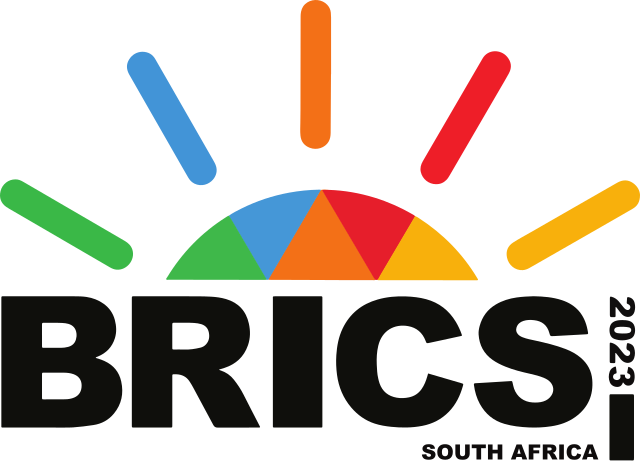
Der BRICS-Gipfel 2023 war der fünfzehnte jährlich stattfindende BRICS-Gipfel, eine Konferenz für internationale Beziehungen, an der die Staats- und Regierungschefs der fünf Mitgliedsstaaten teilnehmen: Brasilien, Russland, Indien, China und Südafrika.[1][2] Der südafrikanische Präsident Cyril Ramaphosa hat auch die Staats- und Regierungschefs von 67 Ländern zu dem Gipfel eingeladen.[3] Darunter 53 andere afrikanische Länder, Bangladesch, Bolivien, Indonesien und Iran.
2023年金砖国家峰会,又称金砖国家领导人第十五次会晤,是第十五届金砖国家年度峰会,由巴西、印度、中国和南非四个成员国的国家元首或政府首脑和俄罗斯的外交部长出席[2]。此次会议是继2013年和2018年后,南非第三次主办金砖国家峰会。峰会将在约翰内斯堡举行,是约翰内斯堡第二次举行峰会。本次会议因国际刑事法庭对俄罗斯总统弗拉基米尔·普京签发逮捕令而引发争议[3]。本次会议亦将是巴西总统卢拉·达席尔瓦自参加了首两次金砖峰会以后第一次重返金砖峰会。
 Anthony Albanese
Anthony Albanese
 Azali Assoumani
Azali Assoumani
 Charles Michel
Charles Michel
 Chūgoku
Chūgoku
 Emmanuel Macron
Emmanuel Macron
 Fumio Kishida
Fumio Kishida
 Giorgia Meloni
Giorgia Meloni

 Hand in Hand
Hand in Hand
 Japan
Japan
 Joe Biden
Joe Biden
 Joko Widodo
Joko Widodo
 Justin Trudeau
Justin Trudeau
 Luiz Inácio Lula da Silva
Luiz Inácio Lula da Silva
 Mark Brown
Mark Brown
 Narendra Modi
Narendra Modi
 Olaf Scholz
Olaf Scholz
 Phạm Minh Chính
Phạm Minh Chính
 Rishi Sunak
Rishi Sunak
 Ursula von der Leyen
Ursula von der Leyen
 Wolodymyr Selenskyj
Wolodymyr Selenskyj
 Yoon Suk-yeol
Yoon Suk-yeol
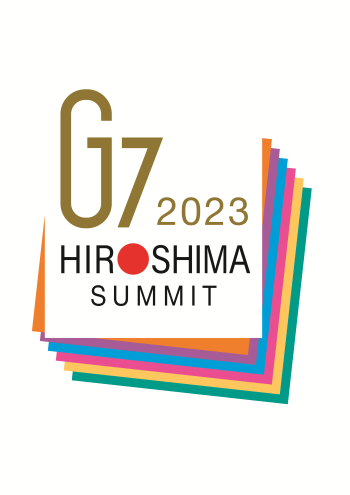



 Abd al-Fattah as-Sisi
Abd al-Fattah as-Sisi
 Abiy Ahmed Ali
Abiy Ahmed Ali
 Aljaksandr Lukaschenka
Aljaksandr Lukaschenka
 António Guterres
António Guterres
 Cyril Ramaphosa
Cyril Ramaphosa
 Denis Sassou Nguesso
Denis Sassou Nguesso
 Emomali Rahmon
Emomali Rahmon

 Hand in Hand
Hand in Hand
 Ilham Aliyev
Ilham Aliyev
 Luis Arce
Luis Arce
 Luiz Inácio Lula da Silva
Luiz Inácio Lula da Silva
 Mahmud Abbas
Mahmud Abbas
 Masoud Pezeshkian
Masoud Pezeshkian
 Mohamed Ould Ghazouani
Mohamed Ould Ghazouani
 Mohamed bin Zayed Al Nahyan
Mohamed bin Zayed Al Nahyan
 Narendra Modi
Narendra Modi
 Nicolás Maduro
Nicolás Maduro
 Nikol Pashinyan
Nikol Pashinyan
 Phạm Minh Chính
Phạm Minh Chính
 Qassym-Schomart Toqajew
Qassym-Schomart Toqajew
 Recep Tayyip Erdoğan
Recep Tayyip Erdoğan
 Russia
Russia
 Sadyr Japarov
Sadyr Japarov
 Serdar Berdimuhamedow
Serdar Berdimuhamedow
 Shavkat Mirziyoyev
Shavkat Mirziyoyev
 Thongloun Sisoulith
Thongloun Sisoulith
 Wladimir Wladimirowitsch Putin
Wladimir Wladimirowitsch Putin
 Xi Jingping
Xi Jingping

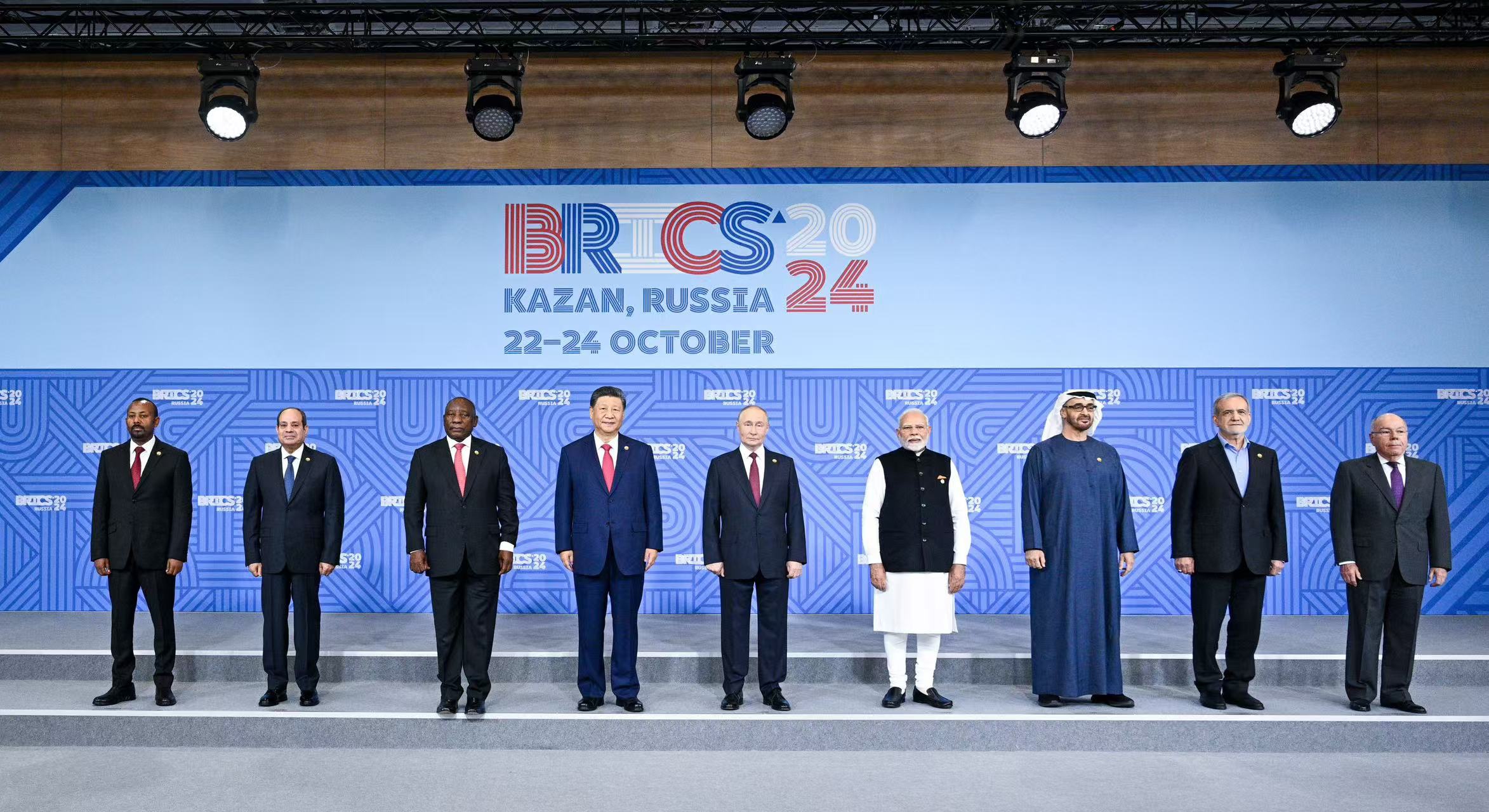


2024年金砖国家峰会是第十六届金砖国家年度峰会,目前正在俄罗斯 喀山举行,时间是2024年10月22日至24日。这是埃及、埃塞俄比亚、伊朗和阿拉伯联合酋长国在第 15 届金砖国家峰会上加入该组织后,首次成为金砖国家峰会成员。
Der BRICS-Gipfel 2024 ist der sechzehnte jährliche BRICS-Gipfel und findet derzeit vom 22. bis 24. Oktober 2024 im russischen Kasan statt. Dies ist der erste BRICS-Gipfel, an dem Ägypten, Äthiopien, der Iran und die Vereinigten Arabischen Emirate als Mitglieder teilnehmen, nachdem sie der Organisation beim 15. BRICS-Gipfel beigetreten sind.
 Abdullah II.
Abdullah II.
 African Development Bank
African Development Bank
 Ajaypal Singh Banga
Ajaypal Singh Banga
 António Guterres
António Guterres
 Charles Michel
Charles Michel
 Emmanuel Macron
Emmanuel Macron
 Fumio Kishida
Fumio Kishida
 Giorgia Meloni
Giorgia Meloni

 Hand in Hand
Hand in Hand
 Italy
Italy
 Javier Milei
Javier Milei
 Joe Biden
Joe Biden
 Justin Trudeau
Justin Trudeau
 Kristalina Georgiewa
Kristalina Georgiewa
 Luiz Inácio Lula da Silva
Luiz Inácio Lula da Silva
 Mohamed bin Zayed Al Nahyan
Mohamed bin Zayed Al Nahyan
 Narendra Modi
Narendra Modi
 OECD
OECD
 OECD
OECD
 Mathias Cormann
Mathias Cormann
 Olaf Scholz
Olaf Scholz
 Papst Franziskus I
Papst Franziskus I

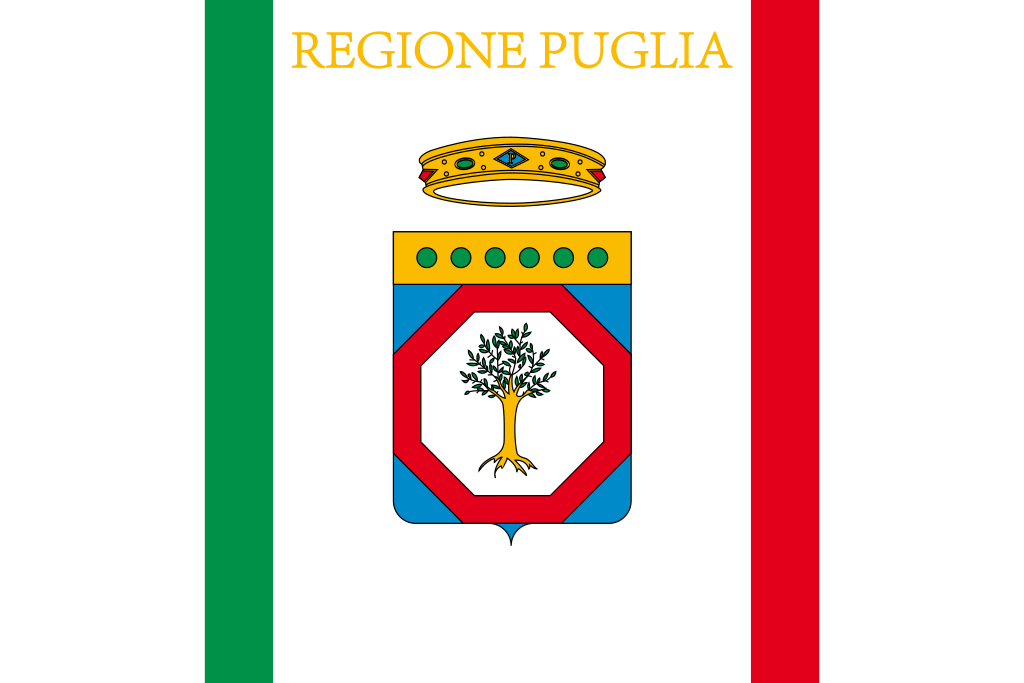 Puglia
Puglia
 Recep Tayyip Erdoğan
Recep Tayyip Erdoğan
 Rishi Sunak
Rishi Sunak
 Ursula von der Leyen
Ursula von der Leyen
 Wolodymyr Selenskyj
Wolodymyr Selenskyj


2024 年 1 月 1 日,意大利将第七次担任七国集团主席国,该集团由意大利、加拿大、法国、德国、日本、英国和美利坚合众国组成。七国集团(G7)也包括欧洲联盟,因共同的价值观和原则而团结在一起,在捍卫自由和民主以及应对全球挑战方面发挥着不可估量的作用。
Am 1. Januar 2024 übernimmt Italien zum siebten Mal den Vorsitz der G7, der Gruppe, die Italien, Kanada, Frankreich, Deutschland, Japan, das Vereinigte Königreich und die Vereinigten Staaten von Amerika umfasst. Die G7, an der auch die Europäische Union beteiligt ist, ist durch gemeinsame Werte und Grundsätze geeint und spielt eine unschätzbare Rolle bei der Verteidigung von Freiheit und Demokratie und der Bewältigung globaler Herausforderungen.
 Narendra Modi
Narendra Modi

 Party and government
Party and government
 *President or Chairman
*President or Chairman

 Party and government
Party and government
 Group of the twenty most important industrial and emerging countries
Group of the twenty most important industrial and emerging countries

 Party and government
Party and government
 BRICS
BRICS
 Prime Minister of India
Prime Minister of India
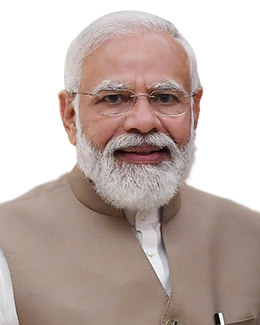
 Abe Shinzō
Abe Shinzō
 Alexis Tsipras
Alexis Tsipras
 Angela Merkel
Angela Merkel
 António Guterres
António Guterres
 Christine Lagarde
Christine Lagarde
 David Cameron
David Cameron
 Dilma Rousseff
Dilma Rousseff
 Dmitri Anatoljewitsch Medwedew
Dmitri Anatoljewitsch Medwedew
 Donald Trump
Donald Trump
 Emmanuel Macron
Emmanuel Macron

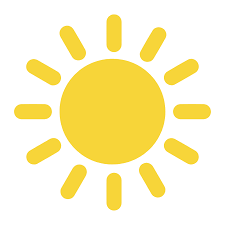 Energy resource
Energy resource
 Felipe Calderón
Felipe Calderón
 Felipe VI.
Felipe VI.

 Financial
Financial

 Hand in Hand
Hand in Hand
 Hassan Rohani
Hassan Rohani
 Jair Bolsonaro
Jair Bolsonaro
 James Gordon Brown
James Gordon Brown
 Jean-Claude Juncker
Jean-Claude Juncker
 Jim Yong Kim
Jim Yong Kim
 Joachim Gauck
Joachim Gauck
 Joe Biden
Joe Biden
 José Luis Rodríguez Zapatero
José Luis Rodríguez Zapatero
 Juan Manuel Santos
Juan Manuel Santos
 Li Keqiang
Li Keqiang
 Liaoning Sheng-LN
Liaoning Sheng-LN
 Mario Monti
Mario Monti
 Mark Rutte
Mark Rutte
 Mauricio Macri
Mauricio Macri
 Naoto Kan
Naoto Kan
 Narendra Modi
Narendra Modi
 Nelson Mandela
Nelson Mandela

 Party and government
Party and government
 *Think Tank
*Think Tank
 Paul Kagame
Paul Kagame
 Petro Poroschenko
Petro Poroschenko
 Recep Tayyip Erdoğan
Recep Tayyip Erdoğan
 Switzerland
Switzerland
 Stephen Joseph Harper
Stephen Joseph Harper
 Tarō Asō
Tarō Asō
 Theresa May
Theresa May
 Tianjin Shi-TJ
Tianjin Shi-TJ
 Ursula von der Leyen
Ursula von der Leyen
 Wen Jiabao
Wen Jiabao

 Important International Organizations
Important International Organizations

 Economy and trade
Economy and trade
 Economic and political research
Economic and political research
 Wladimir Wladimirowitsch Putin
Wladimir Wladimirowitsch Putin
 World Economic Forum,WEF
World Economic Forum,WEF
 Klaus Schwab
Klaus Schwab
 Xi Jingping
Xi Jingping
 Yasuo Fukuda
Yasuo Fukuda

| Year | Dates | Theme |
|---|---|---|
| 1988 | The new state of the world economy | |
| 1989 | Key developments in the 90s: implications for global business | |
| 1990 | Competitive cooperation in a decade of turbulence | |
| 1991 | The new direction for global leadership | |
| 1992 | Global cooperation and megacompetition | |
| 1993 | Rallying all the forces for global recovery | |
| 1994 | Redefining the basic assumptions of the world economy | |
| 1995 | Leadership for challenges beyond growth | |
| 1996 | Sustaining globalization | |
| 1997 | Building the network society | |
| 1998 | Managing volatility and priorities for the 21st century | |
| 1999 | Responsible globality: managing the impact of globalization | |
| 2000 | New beginnings: making a difference | |
| 2001 | 25–30 January | Sustaining growth and bridging the divides: a framework for our global future |
| 2002 | 31 January – 4 February | Leadership in fragile times (held in New York instead of Davos) |
| 2003 | 21–25 January | Building trust |
| 2004 | 21–25 January | Partnering for security and prosperity |
| 2005 | 26–30 January | Taking responsibility for tough choices |
| 2006 | 25–29 January | The creative imperative[61] |
| 2007 | 24–28 January | Shaping the global agenda, the shifting power equation |
| 2008 | 23–27 January | The power of collaborative innovation |
| 2009 | 28 January – 1 February | Shaping the post-crisis world |
| 2010 | 27–30 January | Improve the state of the world: rethink, redesign, rebuild |
| 2011 | 26–30 January | Shared norms for the new reality |
| 2012 | 25–29 January | The great transformation: shaping new models |
| 2013 | 23–27 January | Resilient dynamism[62] |
| 2014 | 22–25 January | The reshaping of the world: consequences for society, politics and business |
| 2015 | 21–24 January | New global context |
| 2016 | 20–23 January | Mastering the fourth industrial revolution |
| 2017 | 17–20 January | Responsive and responsible leadership |
| 2018 | 23–26 January | Creating a shared future in a fractured world |
| 2019 | 22–25 January | Globalization 4.0: shaping a global architecture in the age of the fourth industrial revolution |
| 2020 | 20–24 January | Stakeholders for a cohesive and sustainable world[citation needed] |
| 2021 | 17–20 August | canceled as a result of COVID-19 pandemic |
| 2022 | 22–26 May | History at a Turning Point: Government Policies and Business Strategies[63] |
| 2023 | 16-20 January | Cooperation in a Fragmented World [64] |
Das Weltwirtschaftsforum (World Economic Forum, kurz WEF) ist eine in Cologny im Schweizer Kanton Genf ansässige Stiftung, die in erster Linie für das von ihr veranstaltete Jahrestreffen gleichen Namens bekannt ist, das alljährlich in Davos im Kanton Graubünden stattfindet. Hierbei kommen international führende Wirtschaftsexperten, Politiker, Intellektuelle und Journalisten zusammen, um über aktuelle globale Fragen zu diskutieren. Diese umfassen neben der Wirtschafts- auch die Gesundheits- und Umweltpolitik.
世界经济论坛(英语:World Economic Forum,简称WEF)是一个以基金会形式成立的非营利组织,成立于1971年,总部设在瑞士日内瓦州科洛尼。其以每年冬季在瑞士滑雪胜地达沃斯举办的年会(俗称达沃斯论坛,英语:Davos Forum)闻名于世,历次论坛均聚集全球工商、政治、学术、媒体等领域的领袖人物,讨论世界所面临最紧迫问题。[1]
世界経済フォーラム(せかいけいざいフォーラム、World Economic Forum)は、経済、政治、学究、その他の社会におけるリーダーたちが連携することにより、世界・地域・産業の課題を形成し、世界情勢の改善に取り組む、独立した国際機関。ジュネーヴに本部を置きスイスの非営利財団の形態を有している。1971年にスイスの経済学者クラウス・シュワブにより設立された。
スイスのダボスで開催される年次総会が特によく知られており、約2500名の選ばれた知識人やジャーナリスト、多国籍企業経営者や国際的な政治指導者などのトップリーダーが一堂に会し、健康や環境等を含めた世界が直面する重大な問題について議論する場となっている。また、同機関は、東アジアやラテンアメリカなど6-8の地域会議を開催し、中国及びアラブ首長国連邦においても別途の年次総会を開催している。さらに、会議だけではなく、同機関はさまざまな研究報告書を発表したり、メンバーたちが各業界に関連したイニシアティブに関わるなどの活動を行っている。2011年のダボスにおける年次総会は1月26日-30日に開催された。2012年総会は1月25日-29日に"The Great Transformation: Shaping New Models"というテーマで開催された。2013年総会は1月23日-27日に、創設者クラウス・シュワブによる「地球規模の協力の必要性が今ほど重要な時代はない」との声明を受け、"Resilient Dynamism"というテーマで催された。2014年年次総会は1月22-25日に"The Reshaping of the World: Consequences for Society, Politics and Business"というテーマで催された。2015年年次総会は、"The New Global Context"というテーマで催された。
The World Economic Forum (WEF) is a Swiss nonprofit foundation, based in Cologny, Geneva, Switzerland. Recognised in 2015 by the Swiss authorities as an "other international body" under Switzerland's Host State Act 2007 (HSA, SR 192.12),[1] its mission is cited as "committed to improving the state of the world by engaging business, political, academic, and other leaders of society to shape global, regional, and industry agendas".
The WEF is best known for its annual meeting at the end of January in Davos, a mountain resort in Graubünden, in the eastern Alps region of Switzerland. The meeting brings together some 2,500 top business leaders, international political leaders, economists, celebrities and journalists for up to four days to discuss the most pressing issues facing the world. Often this location alone is used to identify meetings, participation, and participants, with such phrases as "a Davos panel" and "Davos man" being used.[2]
The organization also convenes some six to eight regional meetings each year in locations across Africa, East Asia, and Latin America, and holds two further annual meetings in China, India and the United Arab Emirates. Beside meetings, the foundation produces a series of research reports and engages its members in sector-specific initiatives.[3]
Le forum économique mondial (en anglais : World Economic Forum, abrégé WEF), souvent appelé forum de Davos1,2,3, est une fondation à but non lucratif dont le siège est à Genève. Ce forum est connu pour sa réunion annuelle à Davos, en Suisse, qui réunit des dirigeants d’entreprise, des responsables politiques du monde entier ainsi que des intellectuels et des journalistes, afin de débattre les problèmes les plus urgents de la planète, y compris dans les domaines de la santé et de l’environnement. Le forum organise également la « Réunion annuelle des nouveaux champions » en Chine et plusieurs réunions régionales qui se tiennent tout au long de l’année. Il a été créé en 1971 par Klaus M. Schwab, professeur d’économie en Suisse4. Parallèlement aux réunions, le forum publie un certain nombre de rapports économiques et implique ses membres dans différentes initiatives liées à des secteurs spécifiques5.
Il Forum economico mondiale (nome originale in inglese: World Economic Forum, conosciuto anche come Forum di Davos) è una fondazione senza fini di lucro con sede a Cologny, vicino a Ginevra, in Svizzera, nata nel 1971 per iniziativa dell'economista ed accademico Klaus Schwab.[1]
La fondazione organizza ogni inverno, presso la cittadina sciistica di Davos in Svizzera, un incontro tra esponenti di primo piano della politica e dell'economia internazionale con intellettuali e giornalisti selezionati, per discutere delle questioni più urgenti che il mondo si trova ad affrontare, anche in materia di salute e di ambiente. Oltre a questo celebre incontro annuale, il Forum economico mondiale organizza ogni anno un meeting in Cina e negli Emirati Arabi Uniti e diversi incontri a livello regionale. La Fondazione produce anche una serie di rapporti di ricerca e impegna i suoi membri in specifiche iniziative settoriali.[2]
El Foro Económico Mundial (World Economic Forum, WEF), también llamado Foro de Davos, es una fundación sin fines de lucro con sede en Ginebra, que se reúne anualmente en el Monte de Davos (Suiza), y que sobre todo es conocida por su asamblea anual en Davos, Suiza. Allí se reúnen los principales líderes empresariales, los líderes políticos internacionales, así como periodistas e intelectuales selectos, a efectos de analizar los problemas más apremiantes que afronta el mundo, y entre ellos, la salud y el medio ambiente desde 1991.
El Foro también organiza la “Asamblea Anual de Nuevos Campeones” en China y una serie de asambleas regionales durante el año. En 2008, dichas asambleas regionales incluyeron reuniones en Europa y Asia Central, Asia Oriental, la Mesa Redonda de Directores Ejecutivos de Rusia, África, Oriente Medio, así como el Foro Económico Mundial en Latinoamérica.
Durante el 2008, se lanzó la “Cumbre Inaugural sobre la Agenda Global" en Dubái, con la presencia de 700 expertos mundiales de cada sector que trataron 68 cambios globales identificados por el Foro.
El Foro Económico Mundial fue fundado en 1971 por Klaus M. Schwab, profesor de economía en Suiza.1 Además de asambleas, el Foro genera una serie de informes de investigación e involucra a sus miembros en iniciativas específicas de cada sector.2
Всемирный экономический форум (ВЭФ) — швейцарская неправительственная организация, наиболее известная организацией ежегодных встреч в Давосе. На встречи приглашаются ведущие руководители бизнеса, политические лидеры, видные мыслители и журналисты. Предметом обсуждения являются наиболее острые мировые проблемы, включая здравоохранение и охрану окружающей среды.